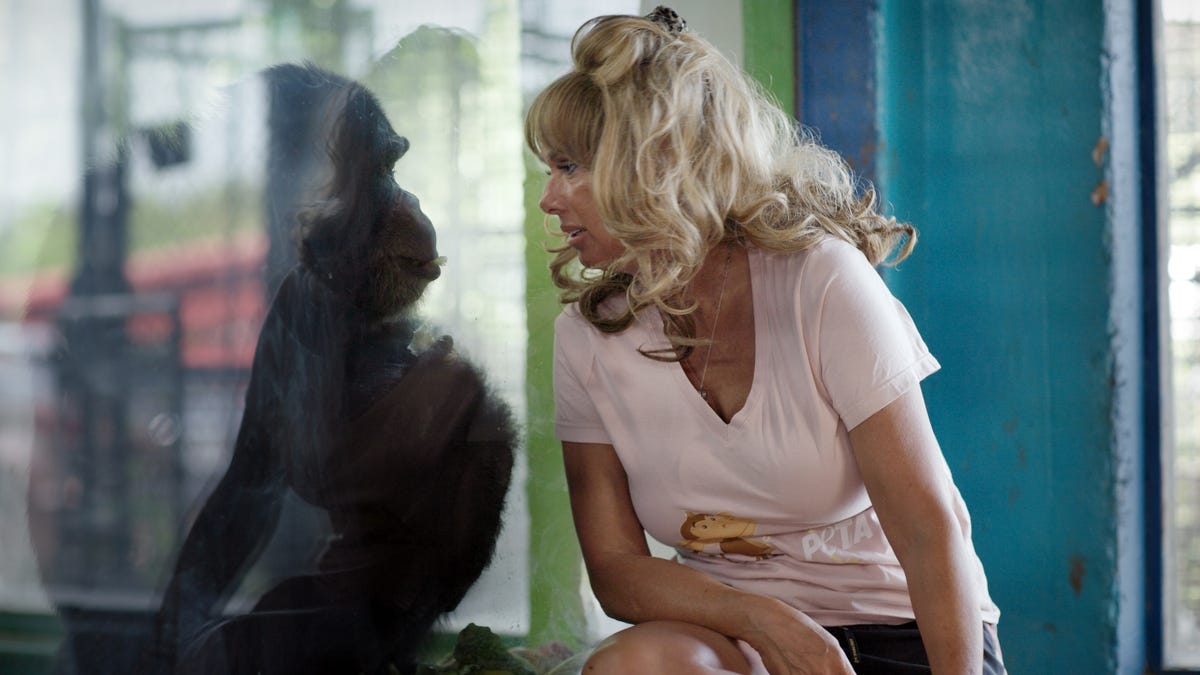While ‘Tiger King’ had us feeling uneasy, ‘Chimp Crazy’ takes it a step further: Review
No, this is not the new “Tiger King.”
Let’s start with that because HBO’s latest documentary series “Chimp Crazy” is being promoted as a spiritual successor to the 2020 Netflix sensation. While “Tiger” was filled with unexpected twists, larger-than-life characters, and genuine mysteries, it also made viewers feel somewhat icky during the dramatic unfolding of the conflict between animal collector Joe Exotic and conservationist Carole Baskin. By watching, were we complicit in its sensationalism? Most likely.
“Chimp Crazy” (Sundays, 10 EDT/PDT, ★ out of four) invites us to be voyeurs once again, this time focusing on owners of chimpanzees. Produced and directed by Eric Goode, who also directed “Tiger,” the series centers on Tonia Haddix, another vivid personality. HBO’s aim is evident; they want “Chimp” to replicate the success of “Tiger.” However, it mirrors the sensationalist style of its predecessor and, this time, it crosses a line.
Across four episodes, “Chimp” documents Haddix’s sobering story. A devoted animal enthusiast from Florida, she develops a deep obsession with some chimps she encounters at a Missouri breeder, which leads her to alter her life to support the chimp habitat. Her notable bond is with Tonka, a former Hollywood star who appeared in various films, including 1997’s “Buddy,” alongside actor and activist Alan Cumming, who features prominently in the series.
Haddix views Tonka as her own child, but when a coworker alerts People for the Ethical Treatment of Animals (PETA) about the chimps’ living conditions, the often-litigious organization quickly steps in to have the animals removed. This initiates a lengthy legal struggle between Haddix and PETA, with her being significantly outmatched.
From a broader perspective, “Chimp” exemplifies the trend in recent true-crime documentaries seeking increasingly outrageous narratives. However, this specific story is not merely bizarre; it is profoundly tragic—and, frankly, it didn’t really need to be told in this manner.
The documentary portrays Haddix and other chimp owners (mostly women) as deeply troubled, with an unhealthy obsession that might border on delusion. Experts clarify that chimpanzees are manageable while young but can become unpredictable, weighing over 200 pounds and turning into wild animals once they reach adulthood. What starts as adorable apes in strollers performing tricks quickly shifts to serious dangers when they grow. Goode and the filmmakers seem to revel in recounting infamous chimp attacks, including the horrific 2009 incident where Connecticut chimp Travis attacked Charla Nash, who was a friend of his owner.
The focus consistently returns to Haddix, who ultimately engages in questionable actions (though not murder-for-hire) in her fight to retain Tonka. The camera reveals her eccentricities in vivid detail: her cosmetic procedures, preference for chimps over her children, acts of perjury, and the raw expression of her emotions. Does she crave fame?
Haddix’s battle against PETA has attracted attention both locally and nationally, including a critical piece in Rolling Stone. Her actions carry repercussions partly because the filmmakers feel an obligation to report their observations to PETA. However, once “Chimp” is aired, she may become a target for mockery and scorn. The series highlights the inadequate regulations regarding private chimp ownership. But is the way to advocate for stricter laws on chimps (which appears to be Goode’s intention) to depict vulnerable individuals in a derogatory manner?
It is revealing—and ethically questionable—that Goode couldn’t independently engage with people like Haddix, considering how “Tiger” exposed a once-hidden subculture.
The mainstream has taken the subjects of this documentary and transformed them into sources of humor. Goode shares in the film that he employed a “proxy director” to engage with Haddix and the other individuals involved. One could argue that he deceived them into exposing their personal lives for the amusement of an audience. While Haddix may have shared more candidly on camera compared to others in similar situations, it’s worth questioning what she believed was the true nature of the camera she was addressing.
It’s difficult to categorize “Chimp” as strictly “good” or “bad” since it primarily evokes a sense of deep discomfort and distress. The show certainly has a cohesive story arc and pacing that keeps viewers returning for weekly installments. Yes, it piques interest.
However, the experience might not be justifiable.

